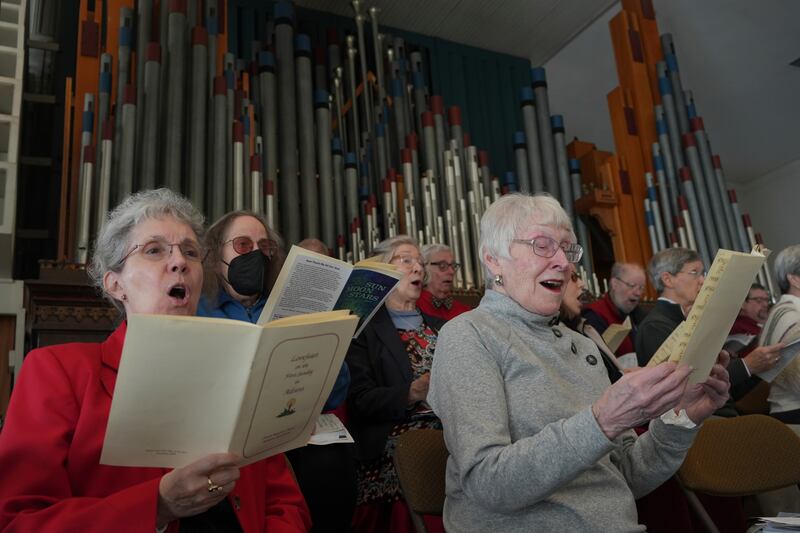The United States’ founders set out to create a country where citizens would be free to practice whatever religion they chose.
Does all that freedom fuel religious switching? Yes, but not as much as in several other countries.
According to Pew Research Center, 28% of Americans have changed religions since childhood. That puts the U.S. near the middle of the pack in Pew’s new analysis of how common it is to switch religions in 36 countries.
South Korea came in at No. 1 on Pew’s list. Half of adults there have left their childhood faith, Pew found.
Spain (40%), Canada (38%), the United Kingdom (36%) and Japan (34%) are among the other countries with higher switching rates than the U.S.
In general, religious switching is more common in East Asia, Western Europe and the Americas than in the rest of the world.
In several African countries, as well as in Israel (1%), India (2%) and Turkey (4%), fewer than 10% of adults have switched religions since childhood, Pew reported.

What is religious switching?
For the purposes of its analysis, Pew defined religious switching as “a change between the religious group in which a person says they were raised (during their childhood) and their religious identity now (in adulthood).”
Importantly, the change had to be from one large religious category to another — from Christian to Muslim or from Jewish to Buddhist, for example — rather than from a Catholic church to a Presbyterian one or from a Reform synagogue to an Orthodox synagogue for it to count.
Pew chose the term “switching” over other options like “converting” because researchers included people who now identify as religiously unaffiliated.
And in fact, the majority of the movement highlighted in Pew’s study involved leaving organized religion behind.
“Most of the switching is disaffiliation — people leaving the religion of their childhood and no longer identifying with any religion," researchers wrote.
For example, in the U.S., around two-thirds of the 28% of adults who belong to a different religious category now than they did as a child moved away from a religion into the disaffiliated category.
Christianity losing religious switchers
In the U.S. and many of the other countries included in the report, Christianity is experiencing the largest net losses.
In other words, many more people are leaving Christianity as adults than joining it.
“In Germany, for example, this ratio among Christians is 19.7 to 1.0, meaning there are nearly 20 Germans who say they were raised as Christians in childhood but don’t consider themselves Christian today for every one German who has become a Christian after being raised in another world religion or in no religion,” researchers wrote.
In the U.S., the ratio is 6 to 1.
Buddhism also stood out in the report for its losses.
In a few countries, like Japan, Buddhism is losing at 10 times more adult adherents than it gains.
Other takeaways on religious switching
Pew’s new study is based on survey responses from nearly 80,000 people.
Here are a few other takeaways from the report:
- In South Korea, 9% of adults were raised with no religious affiliation but later joined a faith group.
- Similarly, in Hungary, “for every Hungarian who has become religiously unaffiliated, nearly two others say they were raised without a religion but now identify with one,” Pew reported.
- In most of the 36 countries, rates of religious switching do not vary much by age, gender or level of education.
- Across the countries surveyed, most adult Christians were raised Christian. But most adult “nones” were raised in a religion — often Christianity or Buddhism.


